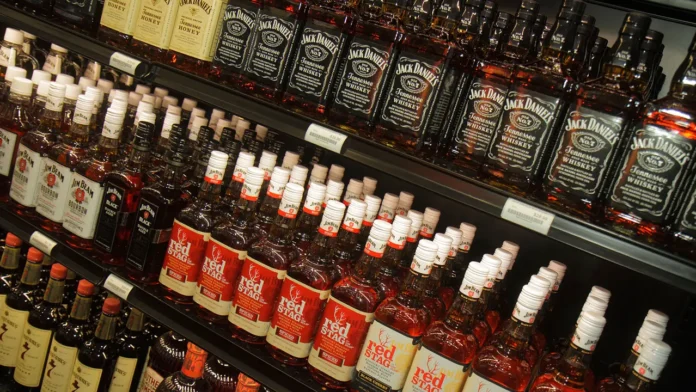Alcoholic drinks and cancer warnings have recently come under the spotlight, with US Surgeon General Vivek Murthy advocating for clearer labeling to highlight the associated cancer risks. Alcohol consumption is the third leading preventable cause of cancer in the United States, following tobacco use and obesity. Murthy emphasized that alcoholic beverages should prominently display these warnings to educate and protect consumers.
The Growing Need For Clear Labels On Alcoholic Beverages
For decades, alcohol has been recognized as a carcinogen. However, awareness around this issue remains low among the general population. While alcoholic drinks in the US have carried warnings about the risks of drinking during pregnancy since 1988, the Surgeon General believes that this is not sufficient. New labels should explicitly state the increased risks of cancer, including those of the mouth, throat, esophagus, liver, and breast.
Murthy stated that “people deserve to know the full extent of the risks associated with alcohol consumption.” This step could mirror strategies used in tobacco control, which have successfully reduced smoking rates through graphic warnings and public awareness campaigns.
How Alcohol Contributes To Cancer Risk?
The link between alcohol and cancer lies in how the body metabolizes it. When alcohol is consumed, it breaks down into acetaldehyde, a toxic chemical that can damage DNA and hinder the body’s ability to repair this damage. Over time, this can lead to cancerous growths.
Furthermore, alcohol increases estrogen levels in women, which is a hormone associated with breast cancer. Combined with other unhealthy lifestyle factors, such as poor diet and lack of exercise, alcohol significantly amplifies the overall cancer risk.
Statistical Insights On Alcohol And Cancer
According to the American Cancer Society, around 6% of all cancers and 4% of all cancer deaths worldwide can be attributed to alcohol consumption. In the United States alone, this translates to approximately 19,500 cancer deaths annually.
Despite these staggering numbers, public awareness remains alarmingly low. A survey conducted by the American Institute for Cancer Research revealed that fewer than half of Americans are aware of the link between alcohol and cancer.
What Existing Labels Lack?
Current labeling requirements for alcoholic beverages in the US focus primarily on pregnancy risks and general health advisories. Unlike tobacco products, which feature graphic and detailed warnings, alcohol labels remain vague and fail to communicate the severity of cancer risks effectively.
Countries like Canada and Ireland have begun to implement stricter alcohol labeling laws that include cancer warnings, serving as a potential model for the United States. These efforts are aimed at encouraging informed decision-making among consumers.
The Historical Context Of Alcohol Warnings
Efforts to raise awareness about the health risks of alcohol began in the late 20th century. In 1988, the US passed a law requiring warning labels on alcoholic beverages, primarily focusing on pregnancy and impaired driving risks. However, this legislation has not been updated to reflect decades of research linking alcohol to cancer.
Public health advocates have long called for more comprehensive warnings, arguing that alcohol companies have downplayed the risks in their marketing campaigns.
Expert Opinions On The Surgeon General’s Statement
Health experts and advocacy groups have widely praised Vivek Murthy’s call for stronger warnings. Dr. Timothy Naimi, an alcohol researcher at the Boston Medical Center, stated, “This is a public health issue that has been neglected for far too long. Clearer labeling could be a game-changer in reducing alcohol-related cancer cases.”
On the other hand, representatives from the alcohol industry have expressed concerns about the potential impact on sales and consumer perceptions. The Alcohol Beverage Federation of America argued that additional warnings might stigmatize moderate drinking, which is often considered safe by many health guidelines.
Public Reaction To Cancer Warnings On Alcohol
The Surgeon General’s statement has sparked significant debate among the public. Many individuals have expressed shock at learning about the cancer risks associated with alcohol. Social media platforms have seen an influx of discussions, with some users calling for immediate action to mandate new warning labels.
Others, however, argue that personal responsibility should play a greater role. They believe that consumers already have access to ample information about alcohol’s risks and should make their own informed choices.
Global Efforts To Address Alcohol-Related Cancer Risks
Globally, several countries have taken proactive steps to address the link between alcohol and cancer. In Canada, some provinces have introduced pilot programs featuring cancer warnings on alcohol labels. Ireland passed legislation in 2018 requiring similar warnings, though implementation has faced delays due to industry pushback.
The World Health Organization (WHO) has also called for stricter regulations on alcohol advertising and labeling, emphasizing the need for global action to reduce alcohol consumption.
Simple Lifestyle Changes Can Reduce Risks
Reducing alcohol consumption or abstaining altogether can significantly lower cancer risks. Public health campaigns often highlight “low-risk drinking guidelines” to help individuals make healthier choices.
For those who choose to drink, moderation is key. The Centers for Disease Control and Prevention (CDC) defines moderate drinking as up to one drink per day for women and up to two drinks per day for men. However, even moderate drinking carries some level of cancer risk.
The Surgeon General’s call for enhanced warnings serves as a reminder that awareness is the first step toward prevention. By understanding the risks and making informed choices, individuals can take control of their health and reduce their cancer risk.




